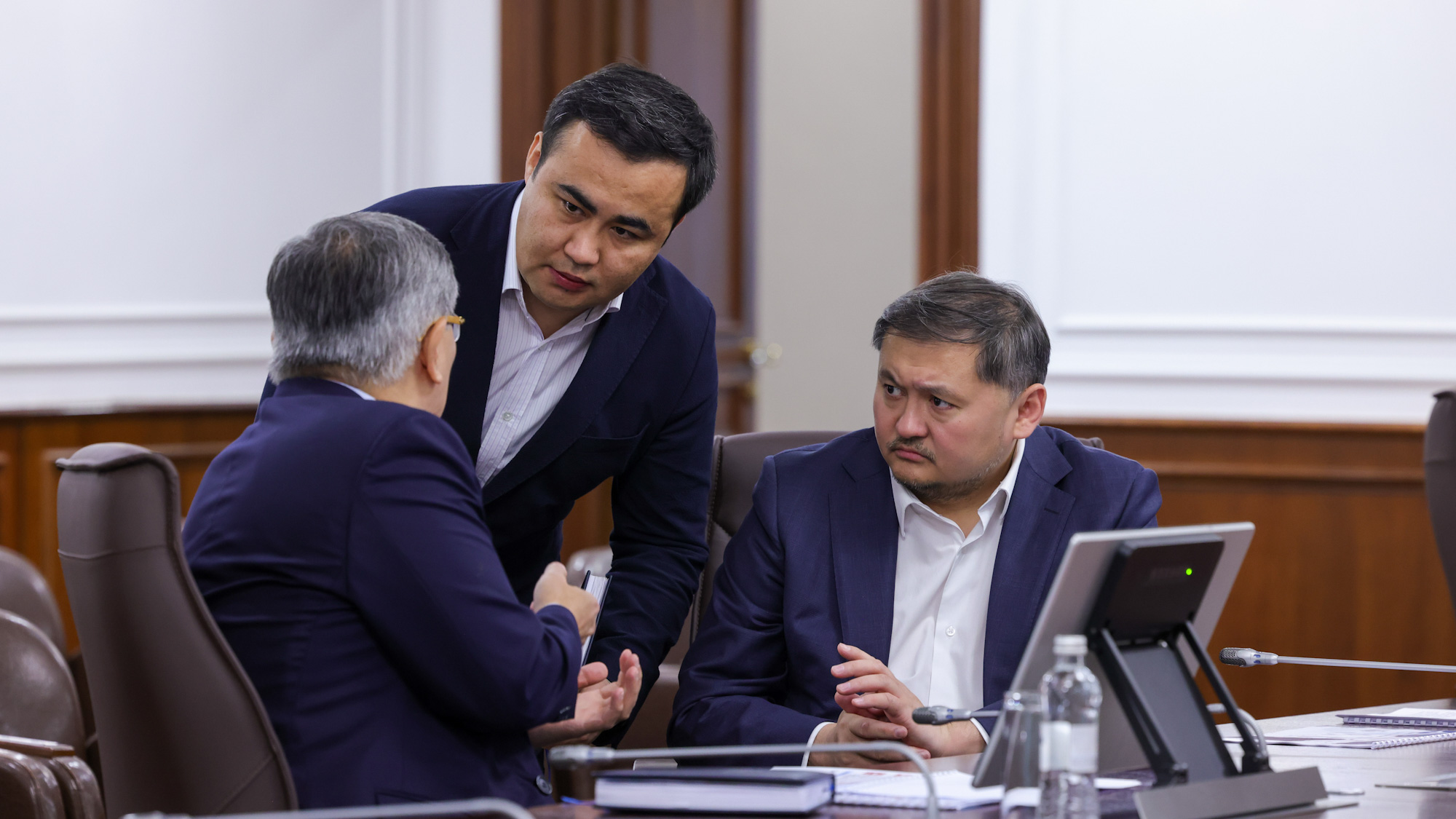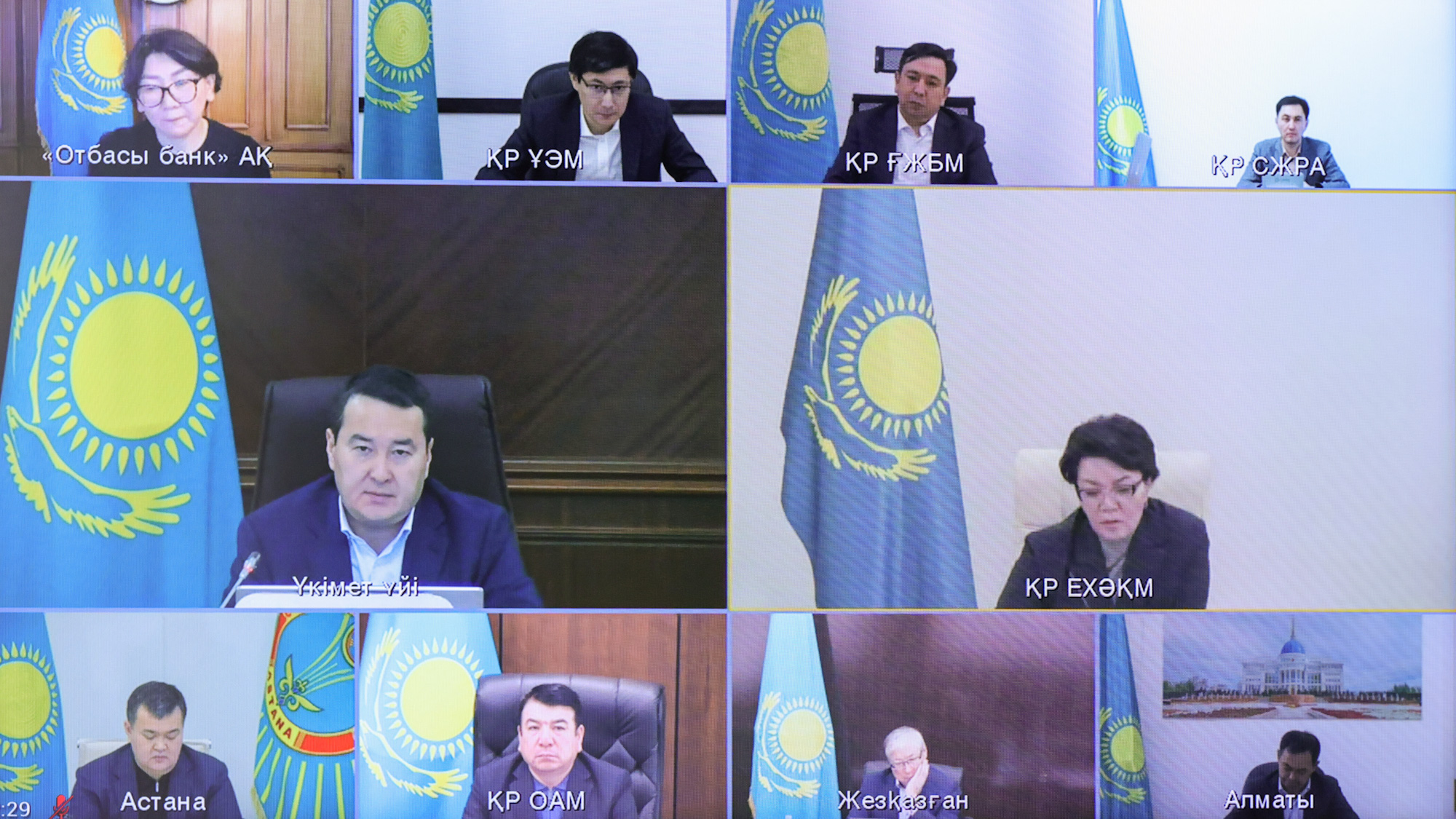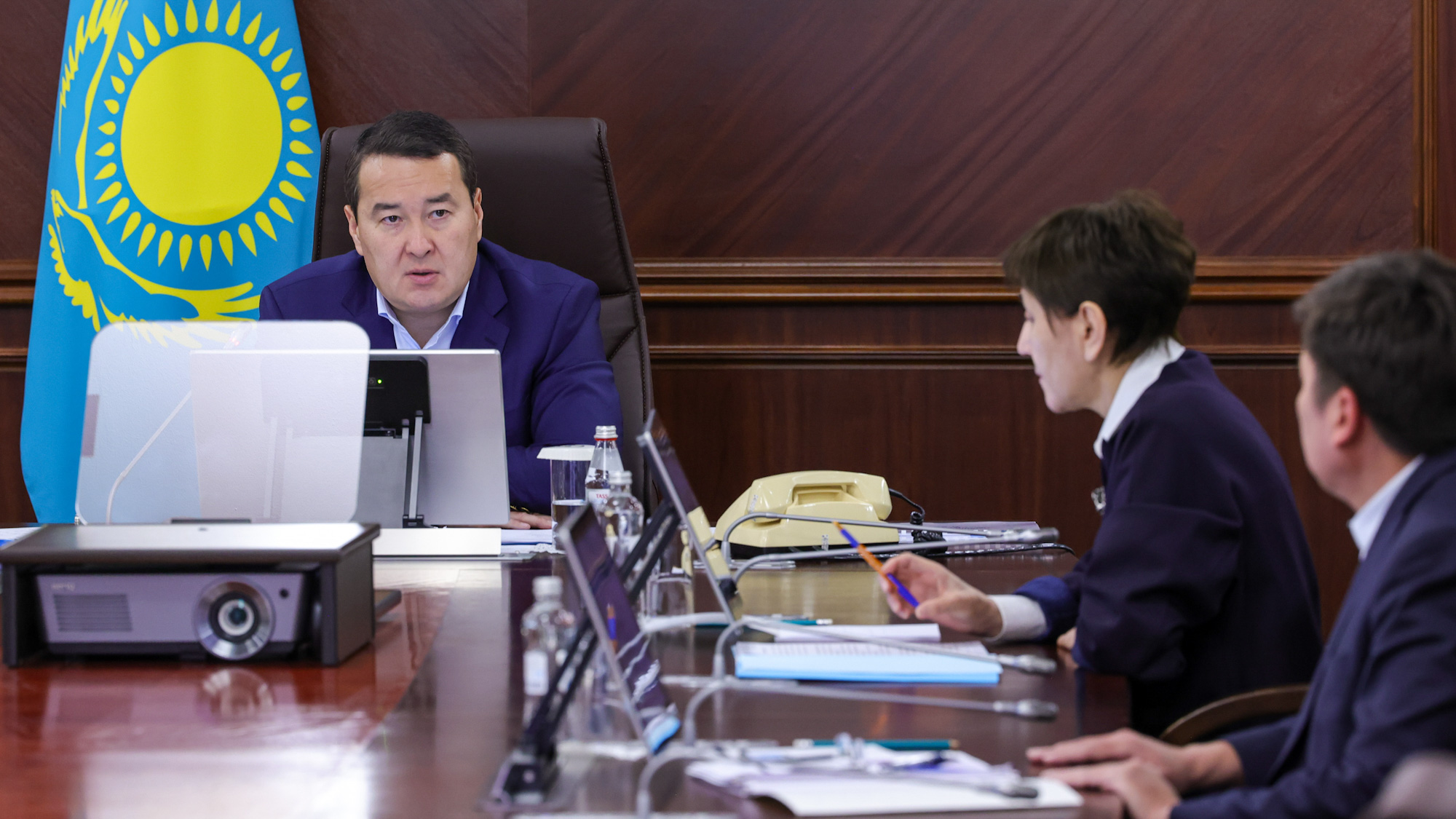02 October 2023, 14:44
 Measures to introduce a unified voluntary savings system "Keleshek" were considered at the Republican headquarters for the implementation of the Election Program and the Address of the Head of State under the chairmanship of the Prime Minister of the Republic of Kazakhstan Alikhan Smailov.
Measures to introduce a unified voluntary savings system "Keleshek" were considered at the Republican headquarters for the implementation of the Election Program and the Address of the Head of State under the chairmanship of the Prime Minister of the Republic of Kazakhstan Alikhan Smailov.
Minister of Science and Higher Education Sayassat Nurbek noted that against the background of high birth rate growth the education system in the future will face a significant increase in the load. Thus, to date, the state educational order allows to cover grants to just over 40% of school graduates. However, by 2040, if the existing approaches are maintained, this figure will be reduced to about 15%. At the same time, the Ministry is increasing the number of grants by an average of 10% annually starting from 2020.
In this regard, as part of the implementation of the Address of the Head of State, the development of a unified voluntary savings system "Keleshek" has begun, which will be an additional mechanism to ensure access of citizens to higher education and will combine existing support measures.
 Within the system, a child will be able to open a special account, to which the state will deposit a starting educational capital of 60 MRP (for children aged 5). The account will then accumulate funds through voluntary contributions from parents, an annual state premium of 5%-7% and investment income. Thus, with minimum contributions of 1 monthly calculation indexes (3,450 tenge) per month, more than 3.3 million tenge will be accumulated by the citizen's 18th birthday. Accordingly, if the voluntary contributions of parents are increased, for example, to 3 monthly calculation indexes, it will be possible to accumulate more than 7 million tenge.
Within the system, a child will be able to open a special account, to which the state will deposit a starting educational capital of 60 MRP (for children aged 5). The account will then accumulate funds through voluntary contributions from parents, an annual state premium of 5%-7% and investment income. Thus, with minimum contributions of 1 monthly calculation indexes (3,450 tenge) per month, more than 3.3 million tenge will be accumulated by the citizen's 18th birthday. Accordingly, if the voluntary contributions of parents are increased, for example, to 3 monthly calculation indexes, it will be possible to accumulate more than 7 million tenge.
Additional measures are also envisaged to support socially vulnerable segments of the population, especially the changes will affect orphans and children left without parental care. In addition, instruments of protection against devaluation are envisaged.
 At the same time, funds will be accumulated within the framework of the initiative of the Head of State "National Fund for Children", which will allow to consolidate savings and pay for education in the chosen university.
At the same time, funds will be accumulated within the framework of the initiative of the Head of State "National Fund for Children", which will allow to consolidate savings and pay for education in the chosen university.
It was separately emphasized that the system of state educational grants will be preserved, for which one can apply based on the results of passing the UNT. The "Keleshek" system will become an additional mechanism of support for citizens. In this case, in case of admission to the grant, the applicant will be able to use the accumulated funds for the purchase of housing.
The Minister stressed that the creation of the system provides for digitalization of all processes of accumulation, ensuring full transparency and integration of the relevant module in the applications of second-tier banks.
On the planned implementation mechanisms told the Chairman of the Board of Financial Center Askar Ibraimov. Deputy Prime Minister of the Republic of Kazakhstan Tamara Duisenova also made a comment on the topic.
Prime Minister emphasized that the issue of introduction of voluntary savings system "Keleshek" concerns almost all Kazakhstani families.
"It provides for start-up capital from the state, voluntary contributions from parents, investment income and state premium. Thus there will be an accumulation of state support measures in a single solidarity accumulation system "Kelezhek", taking into account the integration of educational soft loans. The accumulated funds by the age of university enrollment will make higher education more accessible," Alikhan Smailov said.
As Head of the Government noted, the welfare and competitiveness of the country directly depend on the level of education of the population. According to the World Bank, the growth of the economy is only 16% due to physical capital, 20% - to natural capital, the remaining 64% are related to human and social capital.
 He pointed out that the state has previously provided full support to young people in getting higher education. Thus, over the past 6 years, the number of grants for university studies has almost doubled.
He pointed out that the state has previously provided full support to young people in getting higher education. Thus, over the past 6 years, the number of grants for university studies has almost doubled.
"This year, more than 73 thousand grants (bachelor's degree) were allocated, while in 2017 there were just over 38 thousand. In addition, in three years, the cost per student has doubled from 420 thousand tenge in 2019 to almost one million tenge in 2023," Alikhan Smailov noted.
At the same time, given the growth of birth rate from 2019 to 2022, a significant increase in the number of 18-year-old Kazakhs is expected by 2040. At the same time, the increase in the number of grants will not allow to ensure a wide coverage of higher education.
"Keleshek should help address these issues. Accessibility and quality of education will be ensured by consolidating resources and sharing responsibility between the state, business, educational institutions and citizens. This will allow to fully provide support to children until they receive their first specialty," Alikhan Smailov said.
Prime Minister emphasized that the "Keleshek" system should be introduced next year. In this regard, it is required to ensure a wide discussion of the proposed measures and thoroughly work out the mechanism of the system.
#Alikhan Smailov #The Prime Minister of the Republic of Kazakhstan #Education #Ministry of Science"It should be simple and understandable not only for the Ministry, but also for the population and all participants," he concluded.
Stay updated about the events of the Prime minister and the Government of Kazakhstan - subscribe to the official Telegram channel
Subscribe